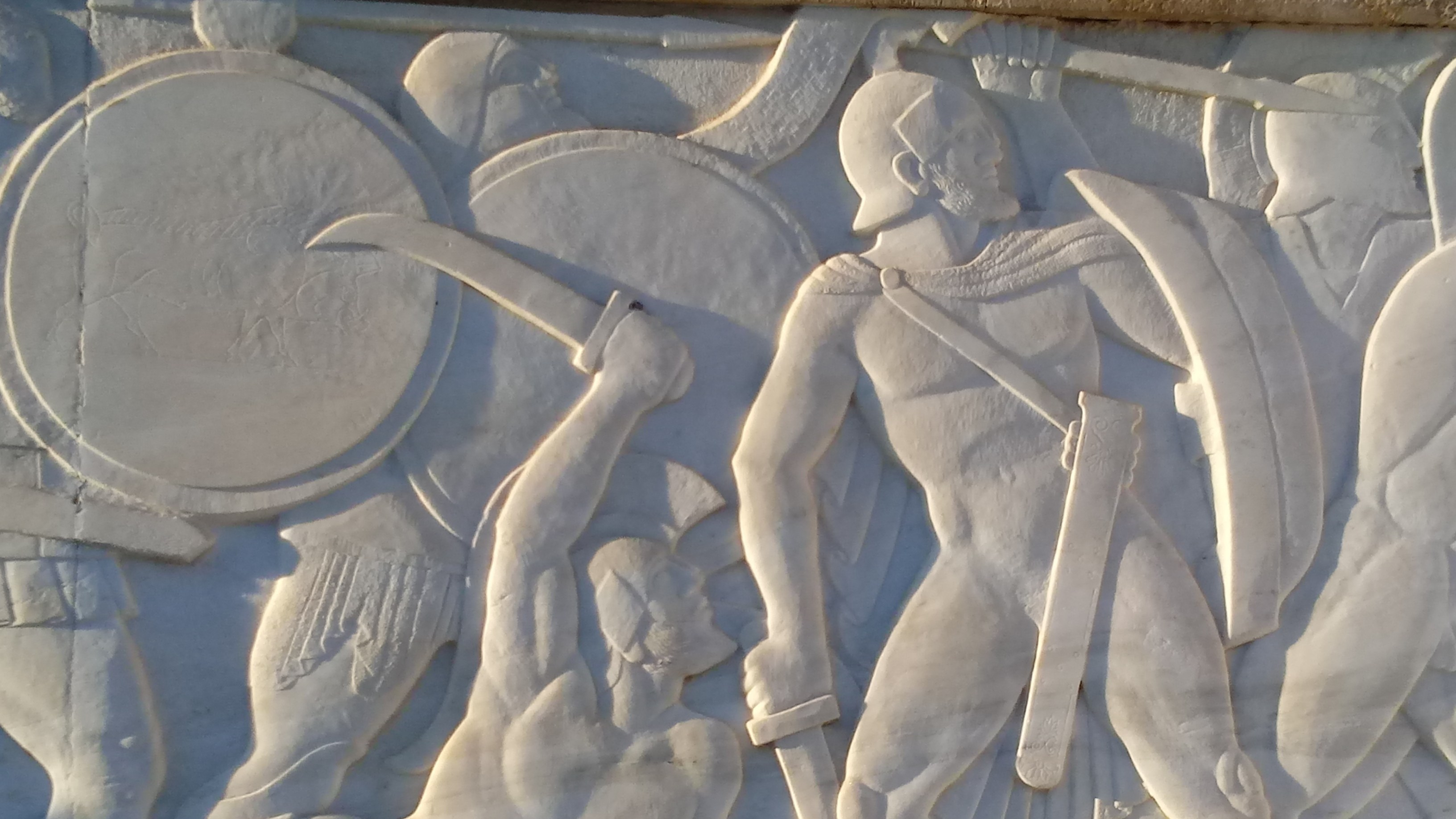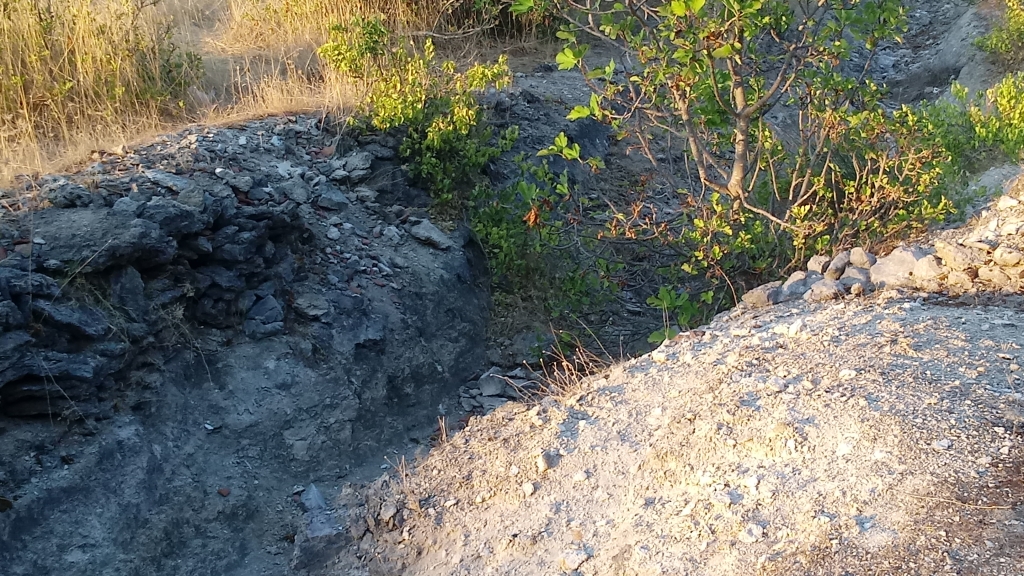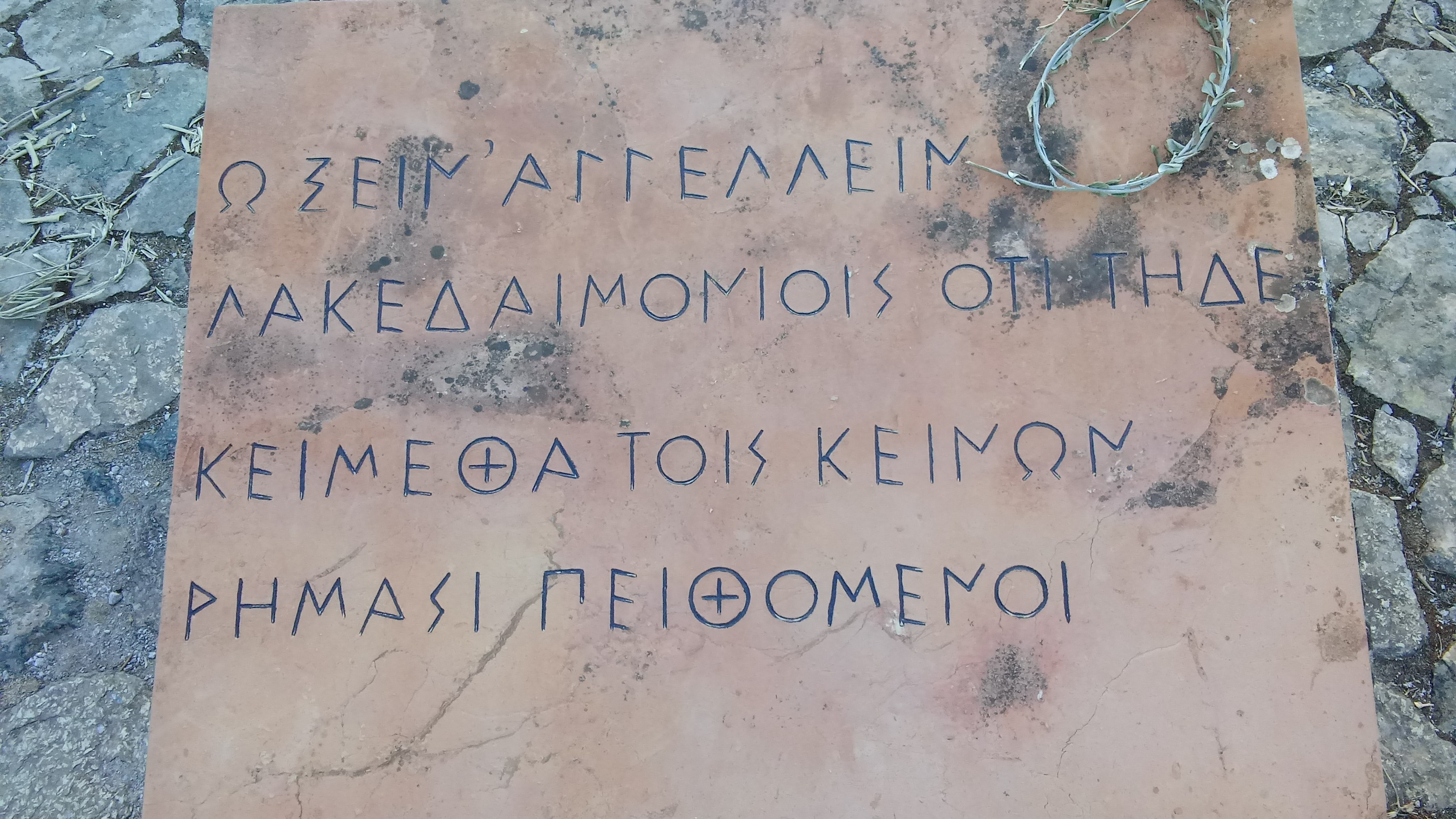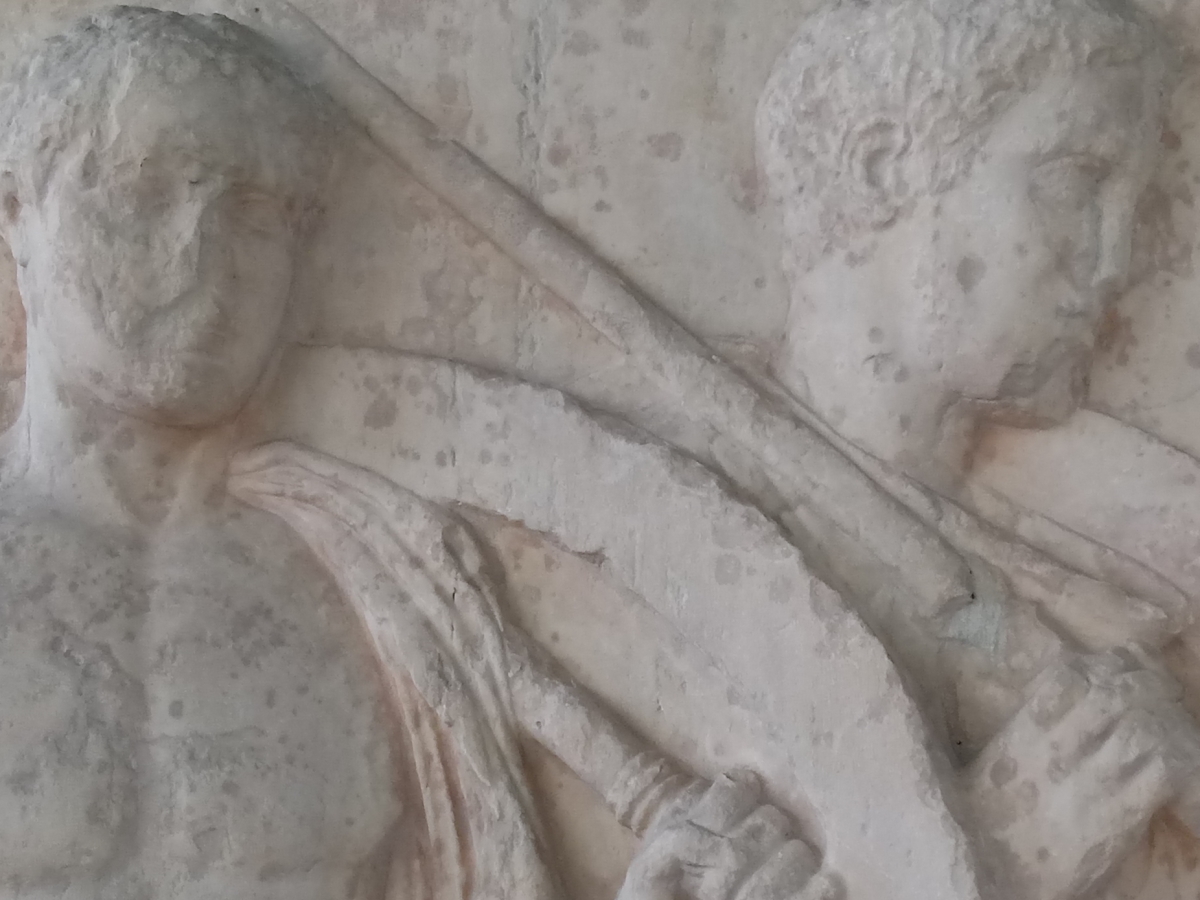Pain is temporary but Glory is forever – so the saying goes.
Some years ago, before I’d ever visited and hiked at the battlefield at Shiloh Tennessee, people had told me that they could feel the spirits of the men who’d died there. I thought that was a bunch of malarkey, just people feeling what they wanted to feel but when I got to Shiloh I felt it too! A spooky feeling of walking in the very footsteps of men who died more than a century ago.
Later a person whose opinion I respect a lot, a very rational man, told me that he totally believed that blood poured out could hallow the ground and that some people could sense a holy place like that.
The same thing happened to me at Thermopylae.

You remember the story of the Battle of Thermopylae in the autumn 480 years before Christ, where 300 Spartans and a few of their allies bottled up a narrow pass and held off a Persian army of perhaps as many as a million (?!) men.

When I heard that story as a child, I wondered why the Persians didn’t just sail down the coast to a better landing spot. Why break yourself over the toughest warriors in the world who were holed up in an impassable mountain pass.

It wasn’t until I stood on the coast of the Malian Gulf and looked inland that my question was answered. The terrain is seriously mountainous. There are only a couple of good landing spots on the entire Eastern coast of Greece. Trying to move a million-man army through anywhere else on that coast would range somewhere between insane and impossible.
At the end, when the Spartans realized that they’d been betrayed to their deaths, they sent most of their allies fleeing back to protect their city-states and the Spartans stayed to delay the Persians.

The Spartans backed up a nearby hill and threw up some improvised fortifications, like these ditches still visible today, and they waited.

The Persians, still fearing to engage the Spartans, stood back and unleashed an unending volley of arrows that blotted out the sun until the last of the Spartans was dead.
Many of the Persians’ arrowheads were excavated by archaeologists in the 1930s.

There was a famous poet named Simonides who lived at the time of Thermopylae. He was so famous that he literally invented four letters of the Greek alphabet! After the Battle of Thermopylae he wrote a tribute to the Spartans that reads (approximately),
Hey, Foreigner, go tell the Lacedaimonians (the Spartans) that we lie here obedient to their laws.

As I walked around the battlefield, and especially as I climbed the Hill of Kolonos and read the Epigram of Simonides, my hair stood on end and I could feel the presence of those long-dead Greek heroes! I’m not imagining it and I’m apparently not the only one, because there are still people, 2500 years later, laying laurel wreaths on the monument stone on top of Kolonos Hill.
Marathon – more than a race
I suspect many of us have heard the story of the Battle of Marathon. Maybe not as many as have heard of the 300 Spartans at Thermopylae because Marathon has not been popularized in a Frank Miller comic book and a big budget movie featuring mutants and ninjas – but Marathon was probably an even…
Piraeus has more than just a port
When we were getting ready to visit Greece, people told us to avoid Piraeus, the suburb of Athens with the country’s largest port. They described it as dingy and seedy and said that there is nothing there except for the port. We were told that the proper procedure for negotiating Piraeus if you wanted to…
Greece’s great martial history
The Roaming Parkers are Greece-bound! This fall we are headed to Athens for a couple of weeks and we are totally looking forward to exploring southern and eastern mainland areas! But why Greece? What put that idea in our heads? I could probably rattle off a dozen reasons real quick, but today there is only…
Categories: Adventure, Hiking, Martial Arts, Travel












